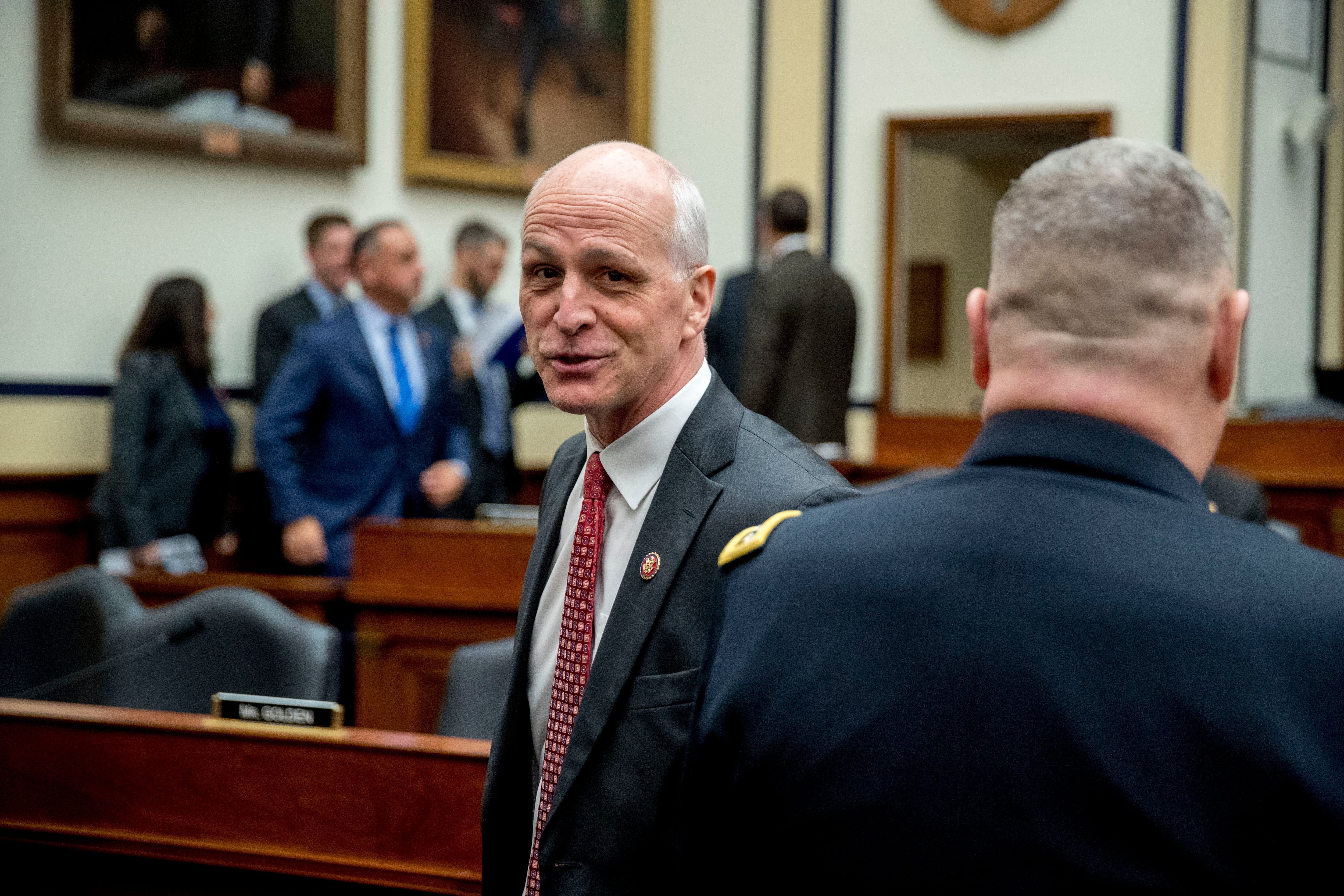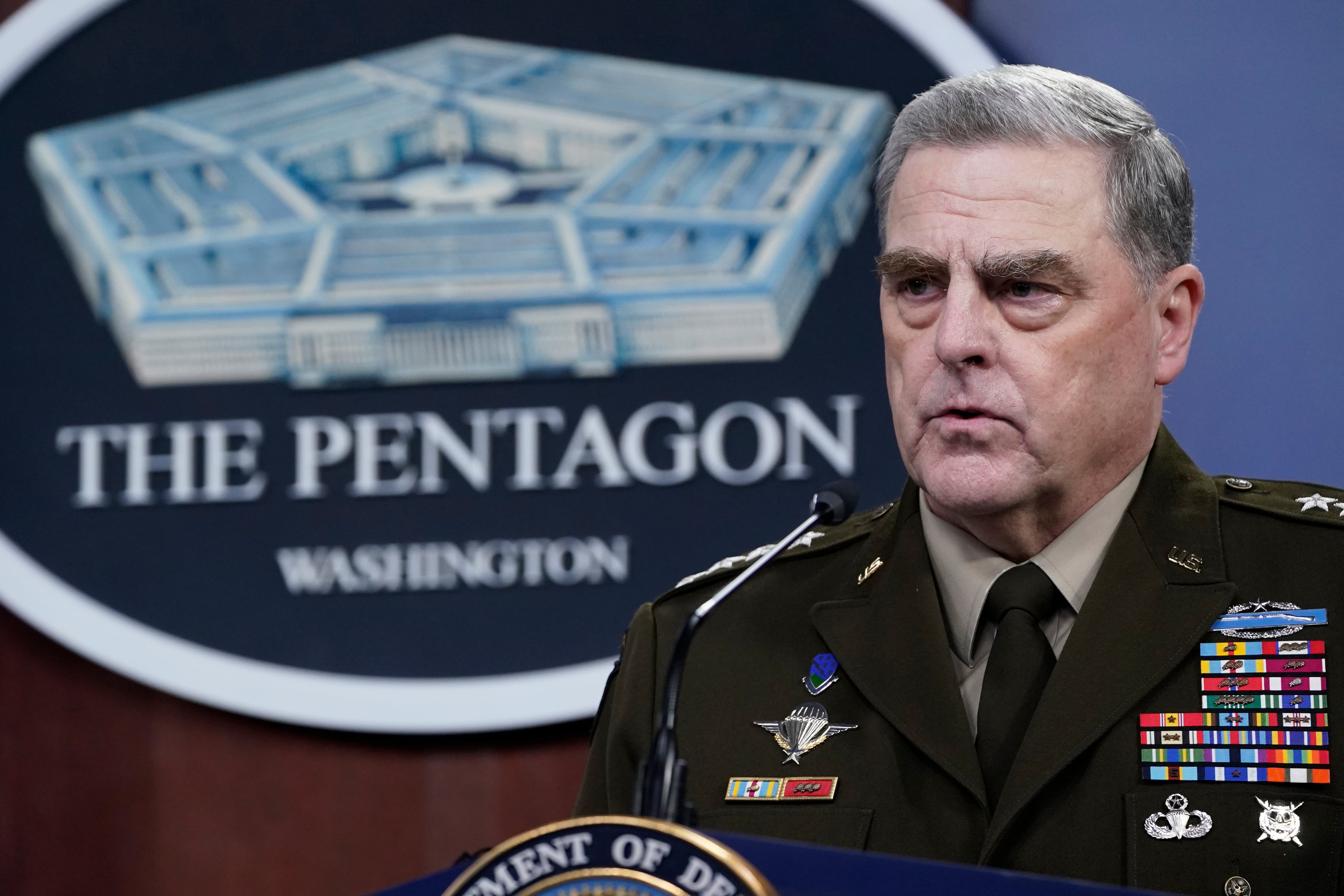Joint Chiefs Chairman Gen. Mark Milley on Tuesday strongly denied accusations he worked to undermine President Donald Trump in the waning days of his presidency, saying his actions were in line with his military and leadership responsibilities.
“My loyalty to this nation, its people and the Constitution hasn’t changed and will never change,” Milley told members of the Senate Armed Services Committee in his first appearance on Capitol Hill since the accusations surfaced.
“I firmly believe civilian control of the military is a bedrock principle essential to this republic, and I’m committed to ensuring the military stays clear of domestic politics.”
RELATED

Milley has faced harsh criticism from conservative lawmakers since the allegations surfaced in a new book released by journalists Bob Woodward and Robert Costa earlier this month.
The authors wrote that before and after Trump’s re-election defeat, Milley grew increasingly worried about the commander-in-chief’s mental state. He held several unreported phone calls with senior Chinese military officials to calm their fears about a potential military strike, and instructed senior U.S. defense leaders to keep him informed of any military actions proposed by Trump, including the possibility of nuclear strikes.
The accounts have prompted about 30 Republican lawmakers to call for Milley’s resignation in recent weeks, arguing that his actions undermined civilian control of the military and Trump’s role as president.
But at Tuesday’s hearing, Milley disputed the details of the events and the intent behind them.
“At no time was I attempting to change or influence the process ... or insert myself into the chain of command,” he said.
Milley said the calls to Chinese officials were pre-planned and involved other administration officials. Reports of the conversations were widely distributed among administration officials in the days afterwards, including to Defense Secretary Mark Esper and Secretary of State Mike Pompeo.
“I am certain that President Trump did not intend to attack the Chinese, and it was my direct responsibility to convey that intent to the Chinese,” he said. “My task at that time was to de-escalate. And my message again was consistent.”
Similarly, Milley said the conversations with senior military leaders were not “an attempt to change or influence the process, usurp authority or insert myself in the chain of command.” Instead, he categorized them as routine conversations during tumultuous times within the government.
Unclassified memos given to the committee include a breakdown of Milley’s conversation with House Speaker Nancy Pelosi, D-Calif., in the wake of the Jan. 6 attack on the Capitol building by pro-Trump rioters.
“I explained that the president is the sole nuclear launch authority but he doesn’t launch them alone,” the document states. “There are processes, protocols and procedures in place, and I repeatedly assured her there is no chance of an illegal, unauthorized or accidental launch.”
Milley also said he told Pelosi he was not “qualified to determine the mental health of the president” in his role as the country’s top military officer.
RELATED

Trump has attacked Milley for the alleged actions, calling him a “dumbass” and demanding his resignation. President Joe Biden has offered support for the Joint Chiefs chairman.
Democrats in Congress have largely dismissed the controversy, saying they have confidence in Milley’s actions and professionalism.
On Tuesday, Republican senators offered several questions about the interactions, but with more of a slant towards investigation than condemnation. Several asked why he agreed to talk to reporters for Woodward’s book and others, saying it showed questionable judgement.
But Milley said transparency and openness is important for military leaders, and assured lawmakers that he did not share any details of private, high-level conversations with administration officials. He said he could not deny any of the allegations in the book, since he has not yet read it.
Milley is expected to face additional questions about the controversy on Wednesday, when he and Defense Secretary Lloyd Austin are scheduled to testify before the House Armed Services Committee on the Afghanistan withdrawal and other issues.
Leo covers Congress, Veterans Affairs and the White House for Military Times. He has covered Washington, D.C. since 2004, focusing on military personnel and veterans policies. His work has earned numerous honors, including a 2009 Polk award, a 2010 National Headliner Award, the IAVA Leadership in Journalism award and the VFW News Media award.





